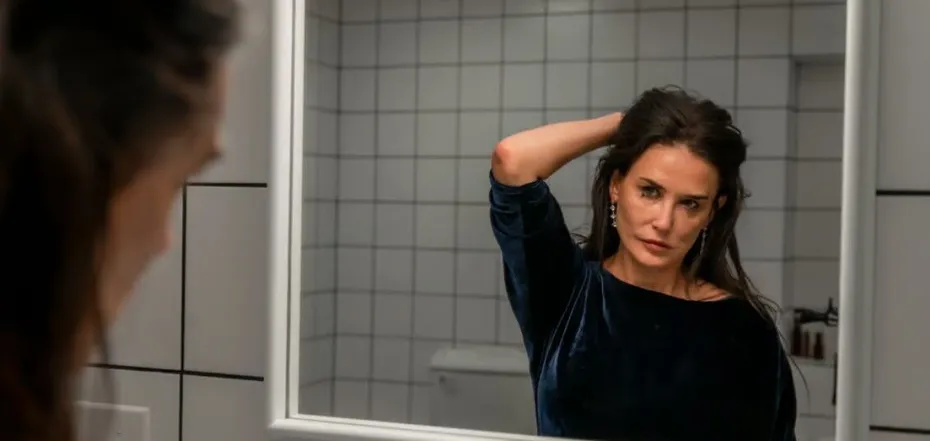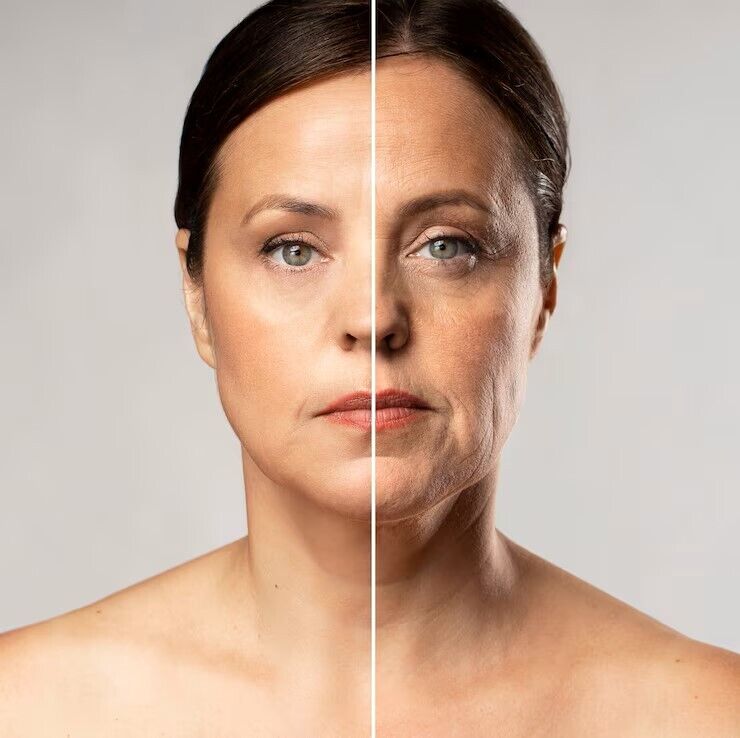
Is it really possible to reduce your biological age? What do scientists say
While no one can actually defy the passage of time, the recent trend of biological age tests suggests that something can be done about the rate at which the body is declining. After all, biological age does not necessarily have to coincide with calendar age.
Nowadays, various companies offer biological age tests to consumers – you can donate a few drops of blood and get the results. However, scientists are skeptical of this popular trend, The Standard writes.
In this year’s hit movie “The Substance,” Demi Moore plays a 50-year-old star who turns to black market drugs that promise the holy grail of anti-aging. According to the plot of the movie, you can’t turn back time without bloody side effects.
In real life, many famous people admit to trying to cheat time. In particular, stars Kim and Khloe Kardashian took a test and found that their biological age is 9 and 11 years less than their chronological age.
What is biological age and is it possible to reduce it
The concept of biological age was developed by scientists working in the fields of health and aging.
While chronological age measures how much time has passed since birth, biological age is based on indicators of how a person’s body is functioning, such as how well their tissues and organs are working, compared to what can be expected of a person of a certain age, scientists explain.
“Our biological age basically depends on how the engine is performing despite the mileage,” said James White, an associate professor at Duke University School of Medicine in North Carolina.
According to scientists, biological age is often measured using age clocks, which are essentially algorithms that predict age or aging-related biology based on various biochemical characteristics.
Epigenetic clocks look at chemical modifications to DNA known as DNA methylation. Other clocks look at various biomarkers, such as protein levels in the blood, experts say. These studies show what results can be expected for different ages: if the biological age is lower than the real age, the results reflect the profile of a younger person.
This difference between a person’s biological and chronological age is particularly relevant to health outcomes, explains Austin Argentieri, a researcher who works on aging at Harvard University and the Broad Institute in Massachusetts.
“This particular indicator can be a very powerful prognostic marker for many different diseases,” the scientist says. He added that the age difference can predict whether a person is at high or low risk of diseases, including heart disease, kidney disease, dementia, and various types of cancer.
But Austin Argentieri is skeptical of the biological age tests offered by various companies. “If you can say that your biological age is 20 years younger than your chronological age, but you have no idea what that means for your health and no idea how to change it, then I think that number is meaningless,” the scientist says.
Instead, Nikolina Lauck, co-founder and CEO of GlycanAge, a British biological age testing company, argues that the test results can be a good starting point to get a general idea of your health and make positive lifestyle changes if necessary.
Mohammad Arfan Ikram, a professor of epidemiology at the Erasmus Medical Center in Rotterdam, says that biological age tests can be “interesting” but he would not do them. “Would I really start changing my whole lifestyle based on the results of such tests? No,” he says. The professor emphasizes that while biological clocks can predict disease, they cannot explain the causes of disease.
Ikram emphasizes that biological tests have become popular because people want to stay young. However, the passage of time is something that cannot be reversed, researchers say.
Instead, health and fitness companies use this obsession with various measurements of “age” that leak into fitness watches and other devices just to make money, experts say.



Comments (0)